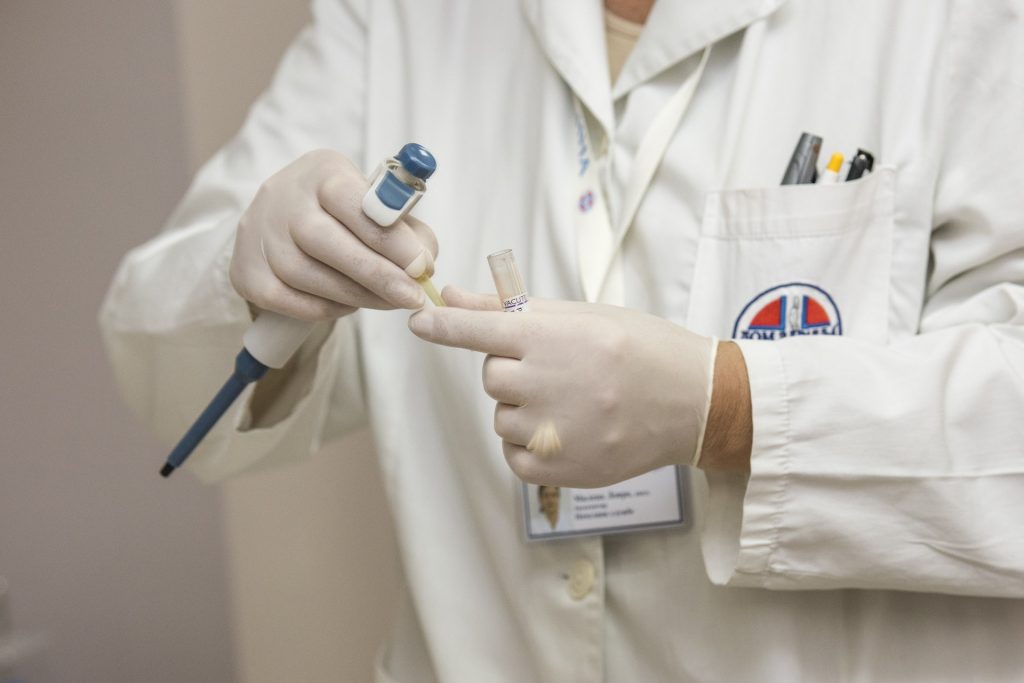What is a medical office manager?
A medical office manager is a vital part of any healthcare practice and is sometimes known as medical practice administrators or simply office managers. They direct the daily operations of healthcare practices and medical facilities.
They have a variety of responsibilities, including:
- Hiring
- Reviewing budgets
- Managing nonclinical staff
- Supervising all business practices
Depending on the size of the healthcare practice, medical office managers normally supervise one or more assistant managers. They handle business operations so doctors, nurses, and other practitioners can focus on providing the best patient care, which ultimately helps bridge the doctor-patient divide.
Medical office managers must be comfortable working with everyone in the practice, including patients, doctors, nurses, and administrators. When recruiting for a medical office manager, ensuring the job description attracts the right people is crucial because this role has a big impact on your daily operations. Have these tips in mind when creating your job ad so you know you’re getting the most out of it.
1. Write an attractive job summary
Your job summary should be clear, strong and to the point. Its purpose is to grab the attention of potential candidates. Provide an outline of what’s expected in the position, as well as an overview of your company. Include any unique aspects of your healthcare practice that’ll grab your reader’s attention and motivate them to apply. Be sure to include the job location, and whether you are looking for a full-time or part-time medical office manager.
Here is an example of a summary for a medical office manager job description:
XYZ Healthcare was founded 45 years ago and focuses on providing the best healthcare via our network. Our three healthcare campuses include a 500-bed facility in Belltown, as well as a 100-bed facility and a 450-bed facility in Waterfront. This means that we are able to provide services to most of the residents in Seattle. As the medical practice manager, you will be responsible for overseeing the day-to-day operations of our healthcare practices, ensuring their effective and efficient office operations. These duties will include holding staff accountable in our patient-centered culture and also making sure that organizational goals and objectives are met at every department level.
2. List essential job duties
The job duties of a medical office manager can be broken down into several different areas, which include:
- Clerical
A medical office manager has to be very organized. It’s their job to make sure records are up-to-date and accessible. They will be responsible for either carrying out clerical tasks or making sure they are done correctly. Depending on the size and staffing of the healthcare practice, they may be required to answer phones and schedule appointments, or they may oversee administrative staff who are performing these duties.
As part of their clerical duties, they will also need to be proficient with a variety of software, such as the Microsoft Office Suite or equivalent programs, as well as possibly accounting software or other specialized tools.
Electronic health record (EHR) management is becoming a normal part of modern healthcare practices. Therefore, it’s important that a medical office manager has experience in using EHRs, like Practice Fusion.
- Staff scheduling
The medical officer manager’s duty is to facilitate the smooth running of the medical practice and a major part of this is how staff are scheduled. They will need to ensure that your healthcare practice is neither overstaffed or understaffed, so that your patients get the best experience every time.
Unless your practice is very small, asking your medical office manager to complete staff schedules manually, even with an Excel spreadsheet, is an inefficient use of their time, especially with all the other duties required of them. Manual scheduling takes up a lot of time and is prone to errors. Once schedules are created, they still need to be sent out to staff. If a staff member needs to request a change, it’s easy to miss among other messages.
Deputy ensures your medical office manager uses their time wisely by enabling your manager to create accurate staff schedules at the click of a button, with Auto-Scheduling.
Letting the staff know about their schedules will also be a breeze with Deputy, as they can access the details directly via our app (available on Android and iOS). There’s no more guesswork about whether schedules were received and any request for changes can be reviewed, authorized or declined quickly.
- Communication
A medical office manager needs to be an excellent communicator, because they need to liaise between different parties frequently. They will need to schedule meetings with practice owners to update them on the status of operations. They may also have to propose changes to make the practice run more efficiently. They will also be communicating with the staff that they oversee, as well as patients and doctors.
Communications also includes writing job descriptions, developing interview questions for new employees and developing personnel policies.
To assist your medical office manager with staff communications, you should make sure that your scheduling software has features that allow it to also serve as a complete collaboration tool.
Deputy facilitates communication between the practice team as a whole, as well as one-on-one, so that everyone is on the same page. With Deputy’s News Feed, your medical office manager can easily keep your staff updated on what is happening in one easy to use portal. The News Feed will quickly become the hub for improved and more efficient communication in your practice.
- Operational
A medical office manager’s primary role is to ensure that the healthcare practice runs efficiently. If the practice is new, the medical office manager will be required to develop standard operating procedures so that everyone will know exactly what is expected of them.
If the practice is already up and running, a medical office manager will need to carry out audits to ensure that everything is running smoothly and they should eliminate any practices that result in the waste of resources. The medical office manager also has to budget funds to ensure that the practice has whatever is necessary to run efficiently.
- Legal
The medical office manager needs to be aware of the laws that apply to the practice at both federal and state level. Their job is to keep up-to-date with changes in legislation to ensure that the practice meets workplace compliance regulations. These legal requirements include keeping confidential patient records and maintaining the health and safety of the premises.
It’s the medical office manager’s responsibility to keep the healthcare practice compliant with all relevant laws. This includes:
- Labor laws when managing staff.
- Data protection laws when dealing with patient records.
- Medical regulations in relation to different aspects of health and safety, for example, proper disposal of hazardous waste.
A medical office manager also has to ensure that doctors, nurses, administrators and everyone else in the practice are up-to-date with their licenses and certificates.
Here are some examples of the job duties of a medical office manager that should be listed in the job description:
- Provides useful information and assistance to both internal and external customers in person and by telephone.
- Reviews office procedures.
- Coordinates meetings.
- Prepares agendas.
- Completes minutes.
- Establishes and maintains accurate recordkeeping and filing systems.
- Verifies hours worked by office staff.
- Monitors the use of vacation, sick and holiday time.
- Assists in preparation of staff performance reviews.
When writing your list of job duties, keep the list limited to the most important and necessary tasks. Break them down into categories. A good place to start is with general duties and specialized duties.
- Specialized duties are specific to a healthcare practice, and include things like, being responsible for securing patient records, having medical equipment inspected and serviced as required, and monitoring biohazardous waste disposal practices.
- General duties include requirements such as supervising administrative staff, handling human resources issues, scheduling appointments, and other tasks.
3. Job requirements
Because of the specialized needs of a healthcare organization, a bachelor’s degree in health administration is usually the minimum requirement for medical office managers. Some need a master’s degree in business administration, especially if they will be working for a large organization.
It normally takes four years of study in an undergraduate program to qualify as a medical office manager. A person must study healthcare laws, ethics, accounting, computing and communication.
Experience in the following areas will also help candidates to be successful in the role of a medical office manager:
- Sociology
- Psychology
- Marketing and advertising
- Organization training and development
4. Qualities to look for in a medical office manager
A medical office manager has to deal with a variety of people, so they must have strong interpersonal skills. They also need excellent written and verbal communication skills, as well as problem-solving abilities. Good analytical skills are also a necessity, since they will be dealing with new regulations and will have to adapt office procedures in order to be compliant. Medical office managers also need to demonstrate attention to detail and a high degree of organization.
5. Experience
In general, people work their way up to medical office manager positions after gaining several years of experience as an administrative assistant or assistant department head. Administrative assistants are put in charge of more complicated projects to expand their skills and experience. You must check with your state to find out whether your candidates need to be licensed if they will be working in nursing care or assisted living facilities.
Some examples of the knowledge, skills, and abilities that should be listed in a job description for the medical office manager role includes:
- Minimum of three to five years of medical office experience, including supervisory experience and physician billing practices.
- Knowledge of regulations related to Medicare, Medicaid and insurance.
- Strong organizational and thinking skills.
- Skills in using healthcare software and computer software.
- Professional communication and presentation skills, including face-to-face, email, telephone and video conferencing.
- Knowledge of maintaining supplies and equipment for the medical setting.
- Skills in writing policies and procedures.
- Ability to communicate effectively and professionally with different stakeholders including nurses, administrative staff, contractors, insurance payers, and the general public.
Conclusion
Writing a solid job description will encourage the right candidates to apply. If you invite the candidate for an interview, make a great impression by showing that you invest in tools like the best workforce management software to make their lives easier.
Deputy is already trusted by more than 90,000 businesses (including healthcare providers) to manage their staff scheduling needs.
Click the button below to get started today with a free trial.











